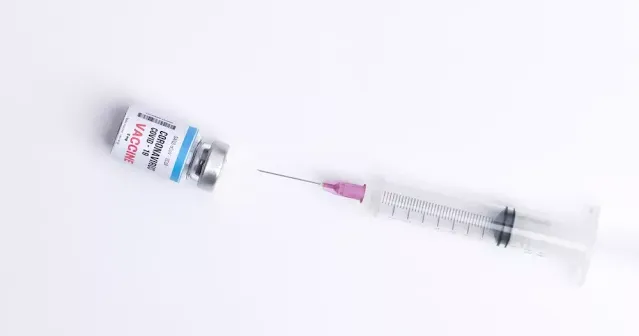Scientists have designed a vaccine that manages to target cells that have a key role in the immune system. The results, published in the journal Nature Communications, demonstrate that the vaccine candidate is effective against the coronavirus and its variants in pre-clinical models. How does it work? When do human trials begin?
Innovative vaccine technology
The vaccination campaign continues in France and Europe, where 70% of the major population are now fully vaccinated, according to the President of the European Commission. However, with variants alone being a full-fledged epidemic, questions remain about the duration of immunity conferred by the vaccine or following infection with the virus and the need to inject a booster dose. According to experts, it is essential to continue research on potential vaccines, to "vaccinate billions of individuals" in order to "regain control of the pandemic".
This is why researchers from the National Institute of Health and Medical Research (Inserm) and the University of Paris-Est Créteil at the Institut de Recherche Vaccinale have developed a vaccine that targets key cells of the immune system, called dendritic cells. For this vaccine candidate, the monoclonal antibody will fuse with a protein of the Sars-Cov-2 coronavirus in order to stimulate dendritic cells. This technology is also currently being used in phase I clinical trials as part of an HIV preventive vaccine.
A single dose to boost antibody production
As a first step, the researchers wanted to test the ability of their vaccine candidate to trigger anti-Covid-19 booster responses in convalescent macaques who contracted the disease six months earlier. On the one hand, the tolerance is rather good and the effectiveness seems strong because the vaccine induces a sharp increase in neutralizing antibodies. On the other hand, convalescent and vaccinated animals re-exposed to the virus "have an undetectable viral load or eliminate the virus within a shorter period of time (less than three days)." In addition, the vaccine candidate protects animals from post-infectious pulmonary complications. The advantage of this serum is that researchers have already adopted it "so that it is effective against new variants identified in recent months."
This vaccine could therefore not only improve the vaccines already available but also serve as a booster, to restimulate the production of neutralizing antibodies. Also, "one dose of this vaccine provides better protection against reinfection than natural immunity." It could also be useful "for vulnerable people or for vaccinating children," because of "the good knowledge of the safety of sub-unitary vaccines." Clinical trials in humans are expected to begin in 2022.











No comments:
Post a Comment